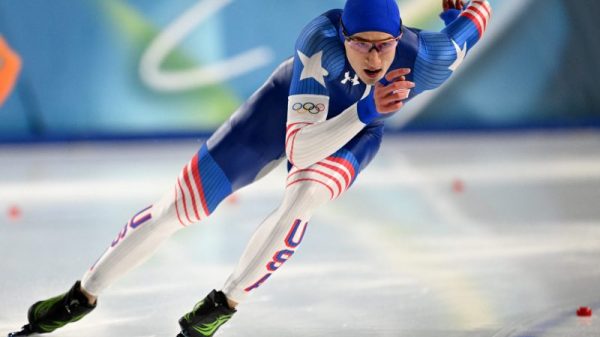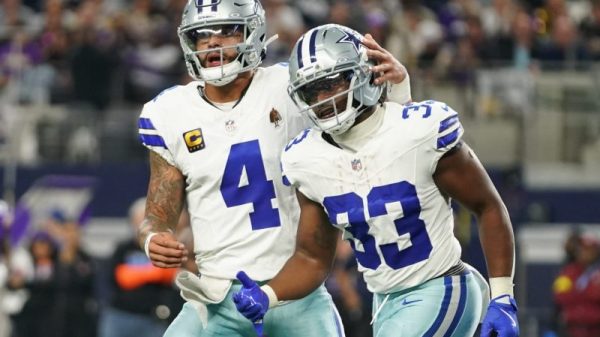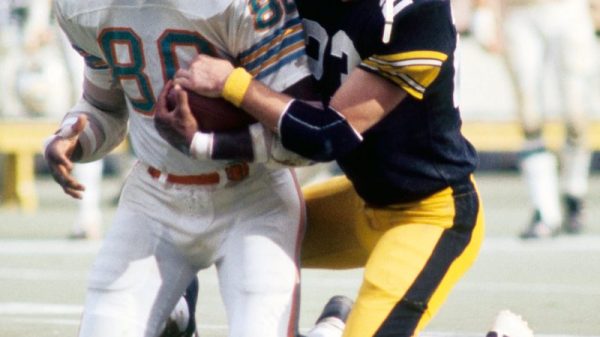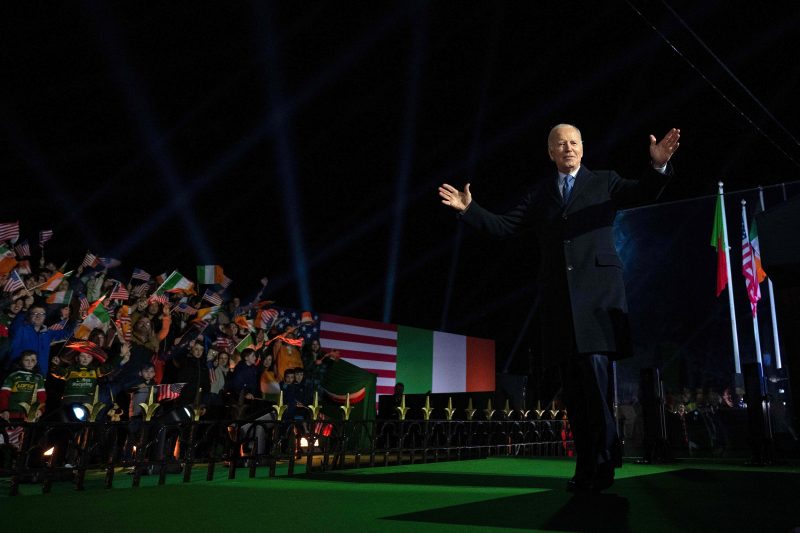BALLINA, Ireland — President Biden concluded a three-day journey through his ancestral homeland with an impassioned speech here that sought to channel the story of his family — who left Ireland for the United States nearly two centuries ago — into a call for shared values, from fighting hunger to combating climate change to defending democracy.
“We must renew our commitment to our values our ancestor fought for,” Biden told the raucous, flag-waving crowd. “What did we Irish fight for? Freedom. Democracy. It always must be defended.”
Addressing what was perhaps the largest and most jubilant crowd he has spoken before as president, Biden emerged onto stage to the flashing of bright strobe lights and the strains of Dropkick Murphy’s “Shipping up to Boston.”
Thousands of people packed the area, lining both sides of River Moy and braving intermittent rain, waving American and Irish flags as musicians played and danced for hours leading up to Biden’s arrival. As he arrived in the area, he flew in Marine One over the crowd, which cheered as the helicopter passed.
And upon leaving County Mayo, Biden, clearly buoyed by the adoring crowd, reaffirmed his plans to run for president again in 2024.
“I’ve already made that calculus,” he told reporters just before boarding Air Force One. “We’ll announce it relatively soon. But the trip here just reinforced my sense of optimism about what can be done.”
Biden spoke on a stage in front of St. Muredach’s Cathedral, a stone church that was built using some 27,000 bricks that his great-great-great-grandfather sold to its builders in 1828. The sale of the bricks — which brought Edward Blewitt the equivalent of $25,000 — helped him and his wife Mary buy tickets for themselves and their eight children to sail to America in 1851.
Invoking Blewitt, and the thoughts he may have had as he sailed across the ocean, Biden said, “I doubt he ever imagined as his great-great-great-grandson would return 200 years later as President of the United States of America. Isn’t that amazing?”
Biden focused on his own family’s story — and highlighted the shared connection between Ireland the United States — but largely refrained from wading into the divisive debate around immigration in America.
Irish immigration to the United States peaked more than a century ago in the years after the Potato Famine of the 1840s. Roughly 4.5 million immigrants from Ireland came to the United States between 1820 and 1930, according to federal archives.
But Ireland today is one of the European Union’s most prosperous nations, and the number of U.S. green cards issued to Irish immigrants has fallen to about 1,600 per year over the past decade, U.S. statistics show.
Biden’s lofty descriptions of his Irish ancestry and America’s immigration history contrasted with his administration’s gritty, sometimes volatile struggle to manage illegal migration across the southern border of the United States.
Biden spoke in depth about his family and characterized his world outlook as informed by his Irish heritage.
“I’ve often said that we Irish are the only people who are actually nostalgic about the future,” the president said. “We always believe in a better tomorrow because no matter what, we’ve always, always carried hope in our hearts. It’s hope that lifted the way through the darkness and lighted it for us. Our strength has helped us overcome everyday hardships, and, above all, our courage has allowed us to march forward with faith, even in the face of sorrow and setbacks.”
He noted that residents of this area had celebrated when he won the 2020 election.
“It meant the world to me and my entire family,” Biden said. “My grandmother … is smiling down on me right now.”
The president began his trip in Belfast where he briefly marked the 25th anniversary of the Good Friday Agreement, which largely ended a period of sectarian bloodshed known as the Troubles.
Biden then traveled to the Republic of Ireland, where he made several stops that marked his strong Irish roots. He toured a castle on the east coast of the island, where his Finnegan ancestors departed in 1849. He met with political leaders and address parliament, declaring repeatedly that it felt like he was coming home.
On Friday, he traveled to the western part of the island, where other parts of his family once settled before also departing for the United States.
Standing by the president’s side throughout the day, as they have throughout the trip, were his son, Hunter, and his sister, Valerie Biden Owens.
Before arriving here, the president toured the North Mayo Heritage Center, where he was presented with a brick from the site where his Blewitt ancestors had lived. “It’s a 200-year-old brick,” Biden said as he read an inscription on the case holding the brick. “That’s incredible.”
Earlier in the day, Biden visited the Sanctuary of Our Lady of Knock, a shrine and popular place of Catholic pilgrimage that hosted Pope John Paul II in 1979, Mother Teresa in 1993 and Pope Francis in 2018. While there, Biden met with Friar Frank O’Grady, the priest who gave the last rites to Beau Biden, the president’s eldest son who died in 2015 at Walter Reed National Military Medical Center.
He also toured the Mayo Roscommon Hospice and Palliative Care Center, a place where he came on a prior visit for the groundbreaking. A plaque at the entrance to the hospice is dedicated to Beau Biden’s memory.
At times, Biden struck a wistful tone, reflecting not only on his family’s journey but also on his own personal and political one. Biden, who turned 80 in November, has said he intends to run for reelection in 2024 but he has yet to officially declare his candidacy.
The trip contained few policy objectives and mostly amounted to a journey abroad focused on his own personal history. He met with distant cousins, returned to sites where his ancestors once lived and visited local bars and restaurants.
“I’m at the end of my career, not the beginning,” Biden said Thursday during a speech to the Irish parliament. “The only thing I bring to this career after my age — as you can see how old I am — is a little bit of wisdom. I come to the job with more experience than any president in American history.”
Nick Miroff contributed to this report.



























